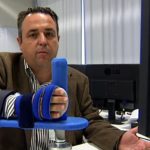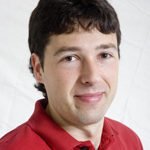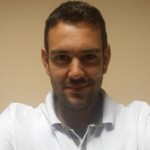Consortium
The key research areas for this project are concerned with: design, development and adaptation of a robotic rehabilitation system for home use, development of control algorithms for adaptive rehabilitation systems and development of tele-rehabilitation interfaces. As regards of design, development and adaptation of the robotic system for home use, HOMEREHAB will benefit of the knowledge of a multidisciplinary team composed by a partner with solid knowledge in mechanical design, such as, CEIT and a partner with knowledge and expertise in the development of commercial rehabilitation robotic systems, such as, INSTEAD. As regards of the development of control algorithms for adaptive rehabilitation systems, HOMEREHAB will benefit from the strong background of UMH in development of adaptive robotic-assisted therapies from other European projects such as, MAAT, BIOMOT and AIDE. As regards of the development of tele-rehabilitation interfaces, HOMEREHAB will benefit again from the knowledge of a team composed by R&D center, such as, CEIT and a company, such as, INSTEAD.
On the exploitation activities, the consortium will also benefit from Industrial partner (INSTEAD). INSTEAD is an Spanish SME involved in spreading the use of Rehabilitation robotic solutions in multiple scenarios. Moreover, INSTEAD is included as a Market Participant in the prestigious and recent WinterGreen Research report about “Rehabilitation Robots, Active Prostheses, and Exoskeletons: Market Shares, Strategies, and Forecasts, Worldwide, 2014 to 2020”
Key Persons
 |
Prof. Dr. Nicolas Garcia-Aracil is Associate Professor of Control and Systems Engineering at Miguel Hernandez University (Spain). He holds a M.Sc. in Control Engineering by the University of Murcia (1996, Spain), Master in Design, Robotics and Industrial Automation from University of Murcia (Spain) 1996-1997 and a PhD in Control Engineering by the Miguel Hernandez University of Elche (Spain). He has been appointed as Visiting Scientist at INRIA (Institut National de Recherche en Informatique et en Automatique), Sophia Antipolis, FRANCE), in 2003 and at Institute of Robotics and Mechatronics, DLR, Oberpfaffenhofen-Wessling, Germany, in 2006. His current research interests are medical and surgical robotics, rehabilitation robotics, medical image, computer vision, human-robot Interaction and design and control of new robotic devices. Dr. Nicolas Garcia was a 2004 recipient of the Best Thesis in Roboticsˇ, National Research Prize, from the Spanish Federation of Automatic control. He is author or co-author of a broad range of research publications. He served as Program Chair of the 2012 IEEE RAS\\EMBS International Conference on Biomedical Robotics and Biomechatronics (BIOROB, Roma, Italy) and the General Chair of EURON Winter School on Rehabilitation Robotics (Elche, Spain). |
|---|
 |
Iñaki Díaz is a researcher in CEIT’s Applied Mechanics Department.
He received his MS and PhD degrees in Mechanical Engineering from the University of Navarra, Spain, in 2004 and 2008. His research areas include biorobotics, robotic rehabilitation, mechatronics in medicine, haptic rendering and control, advanced haptic interfaces for the automotive industry and virtual multisensory interaction. He is also Assistant Lecturer at the School of Engineering at the University of Navarra (TECNUN), teaching Master’s and undergraduate courses since 2009. |
|---|
 |
Dr. Alejandro García Moll is CEO of Instead Technologies. He received his MS on Bioengineering from Miguel Hernández University of Elche, Spain in 2009 and his Degree on Telecomunications Engineer at Miguel Hernandez University of Elche, Spain in 2008. |
|---|

